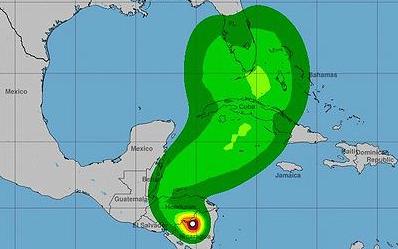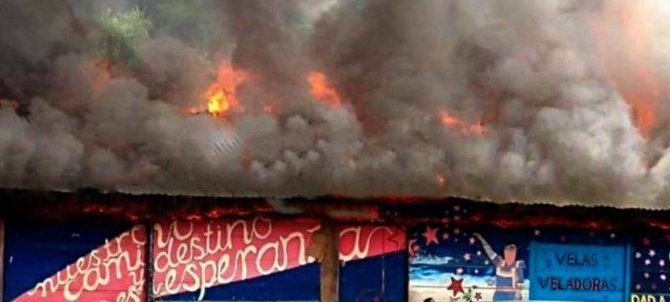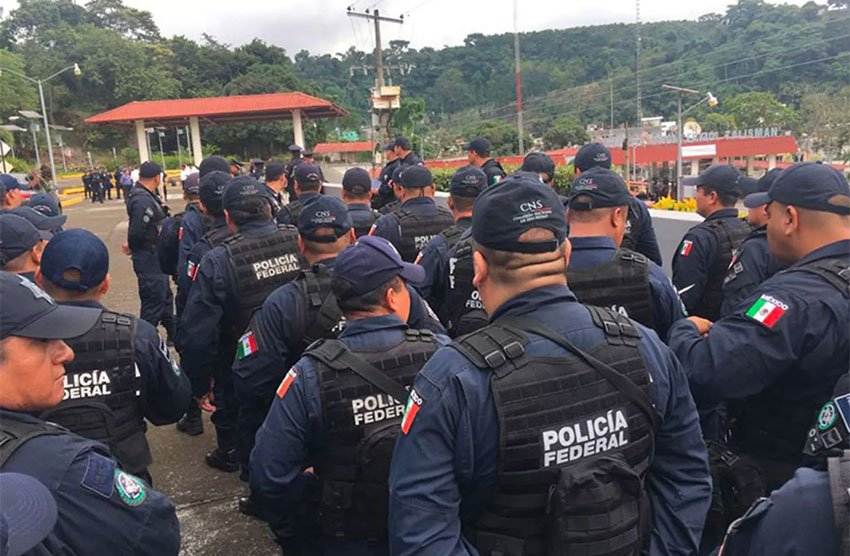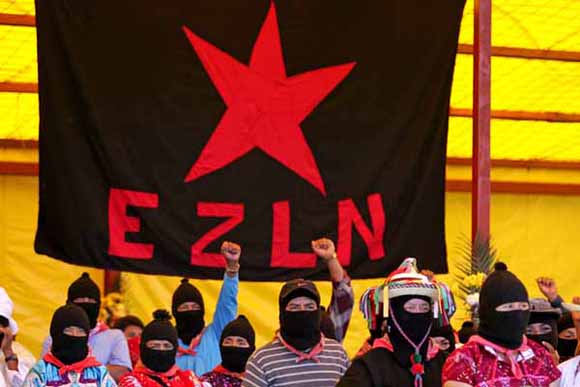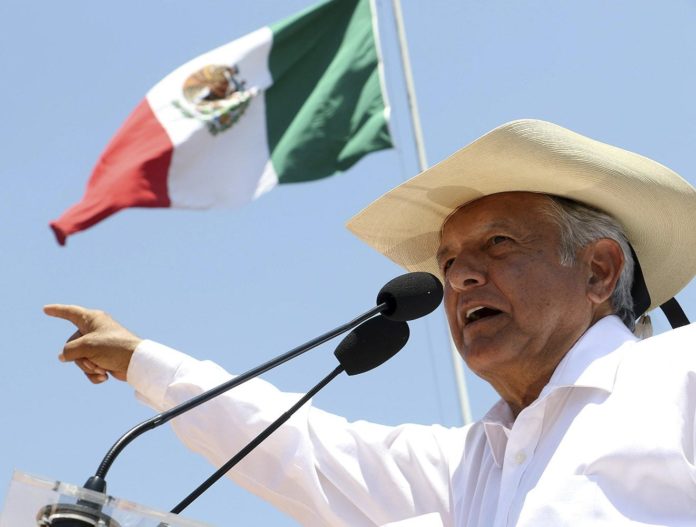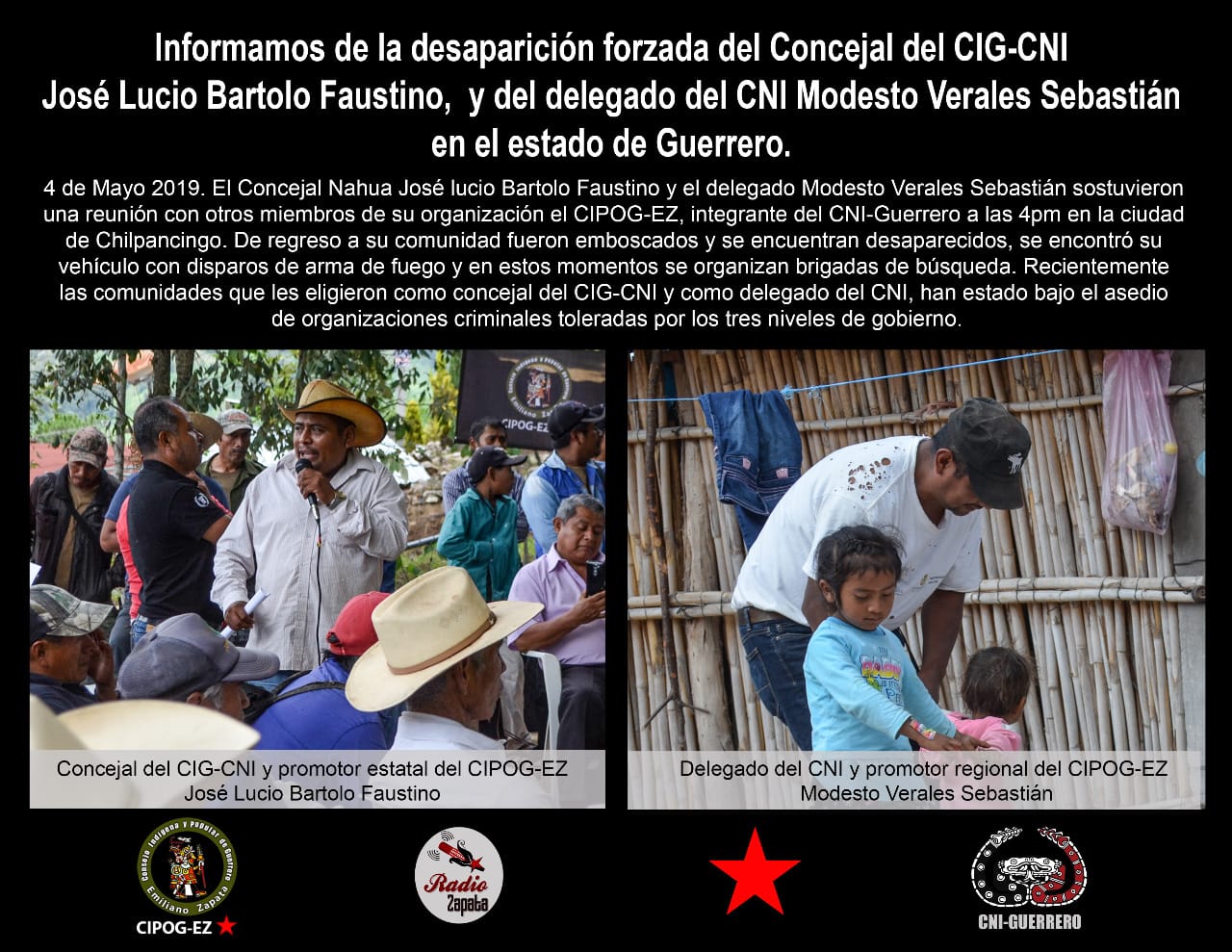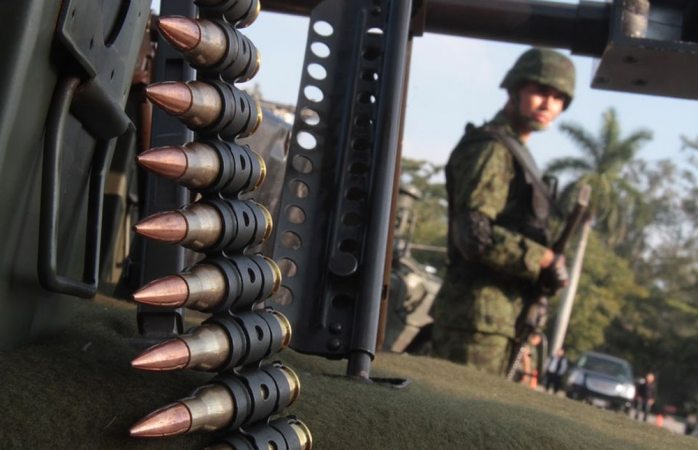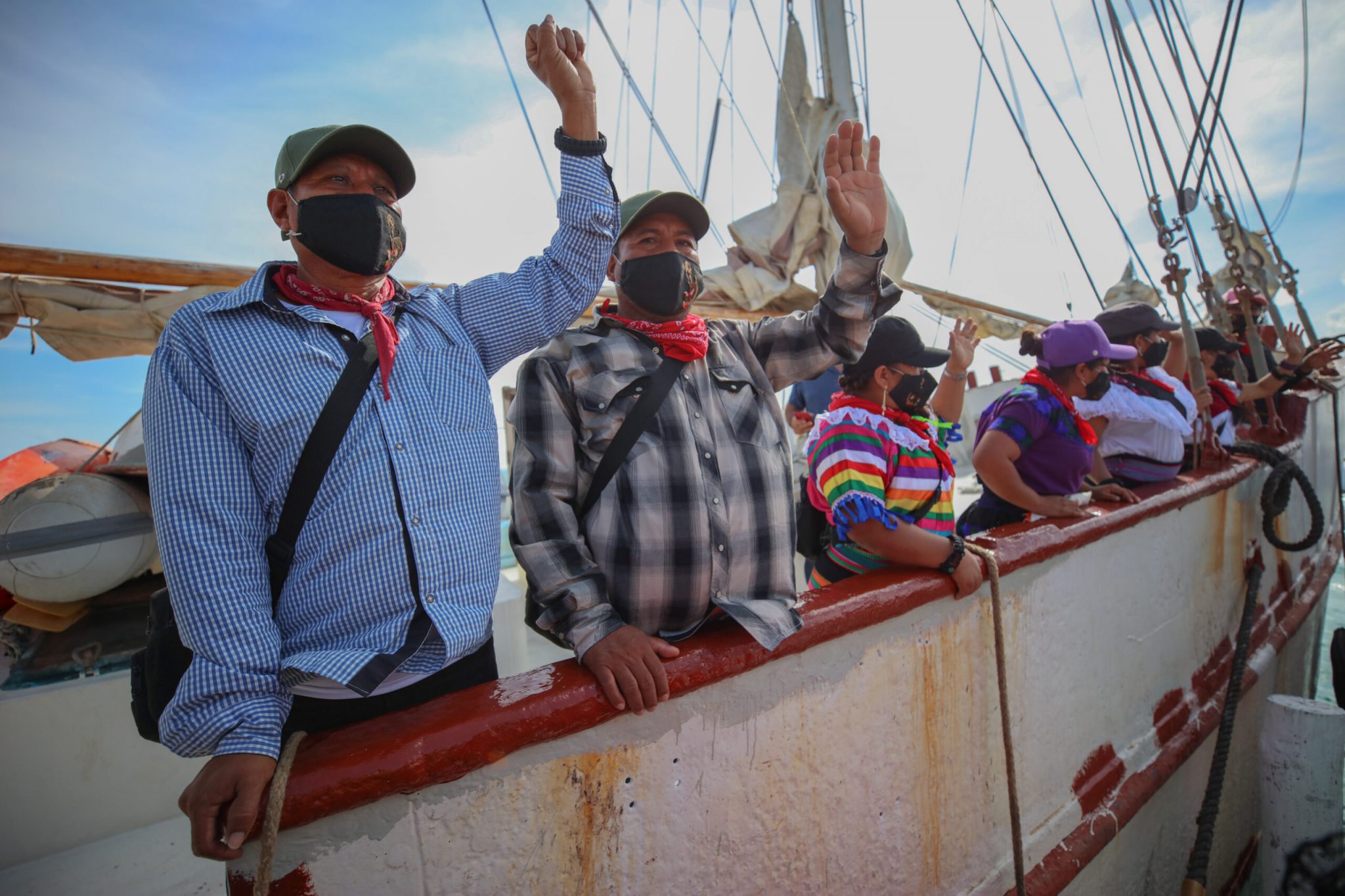
Zapatistas launch symbolic ‘invasion’ of Spain
Seven indigenous Maya members of Mexico’s Zapatista movement set sail from Isla Mujeres, off the coast of the Yucatán Peninsula, on a trans-Atlantic voyage meant to symbolically reverse the Spanish conquest of Mexico 500 years ago. Sailing in a wooden vessel they built themselves, christened La Montaña, the delegation hopes to reach Madrid by Aug. 13, anniversary of the 1521 fall of Tenochtitlán, Mexico’s ancient capital, to the conquistador Hernan Cortés. The delegation intends to land at Vigo, on Spain’s northern coast, and then continue to Madrid, beginning a tour of some 20 European countries. (Photo: Pie Página)



